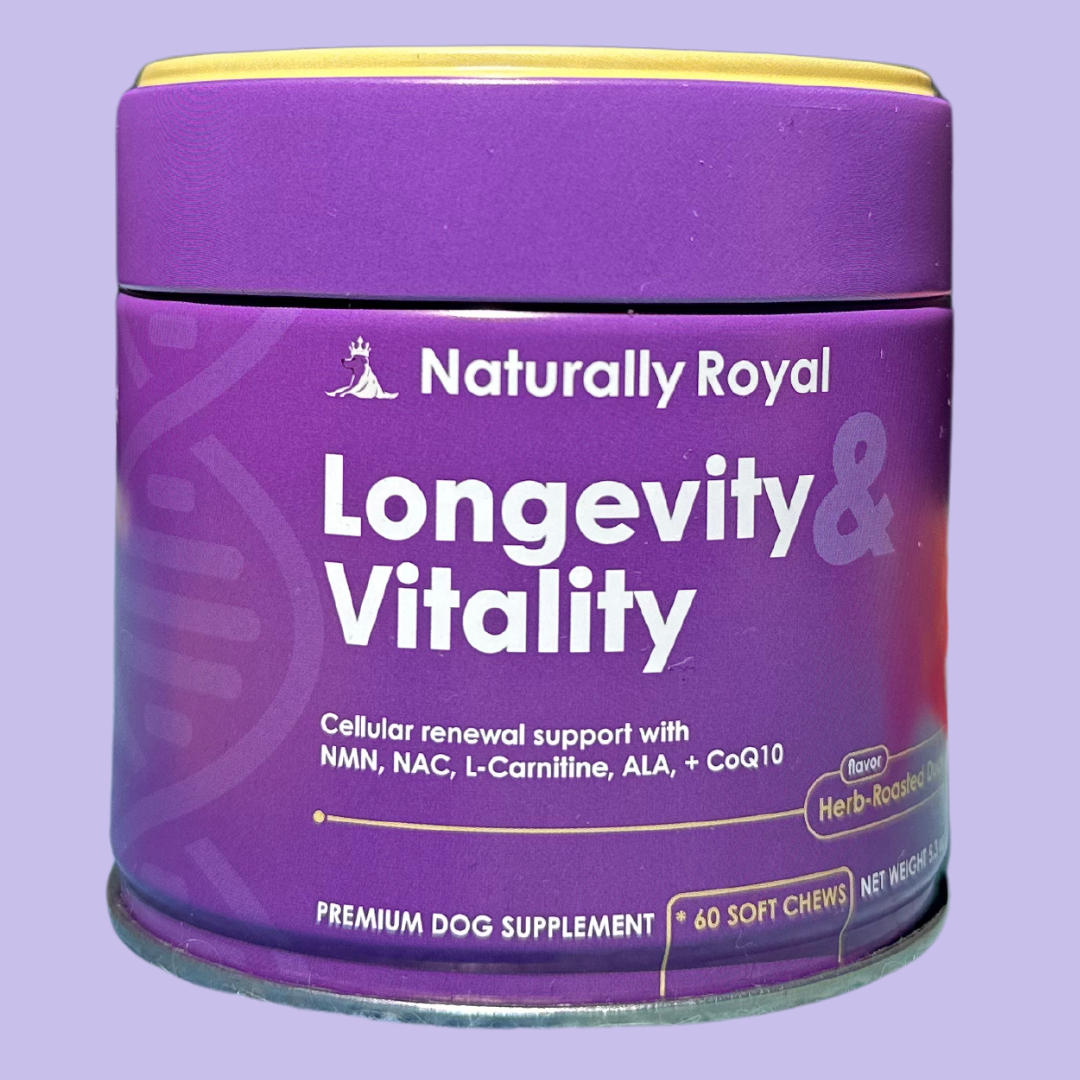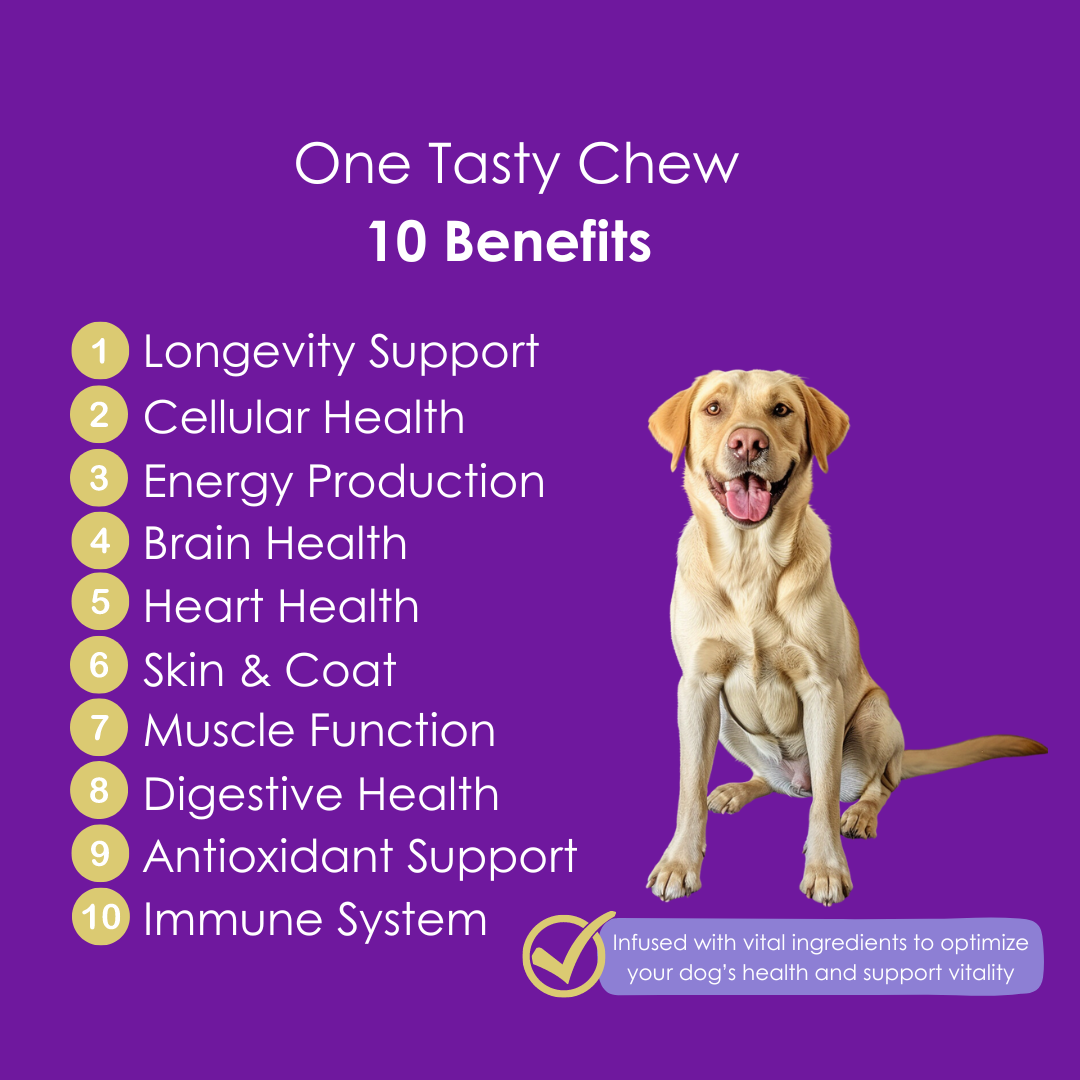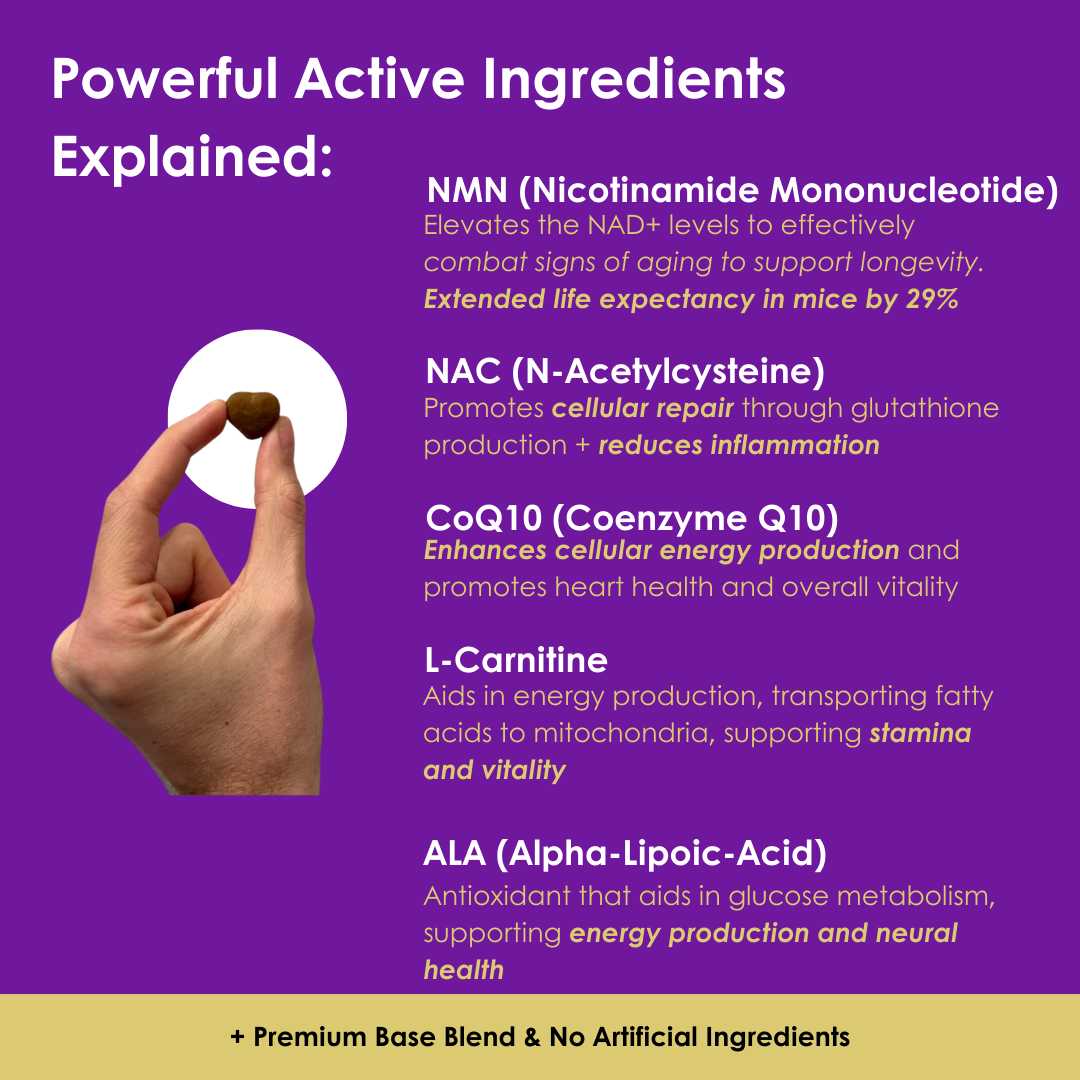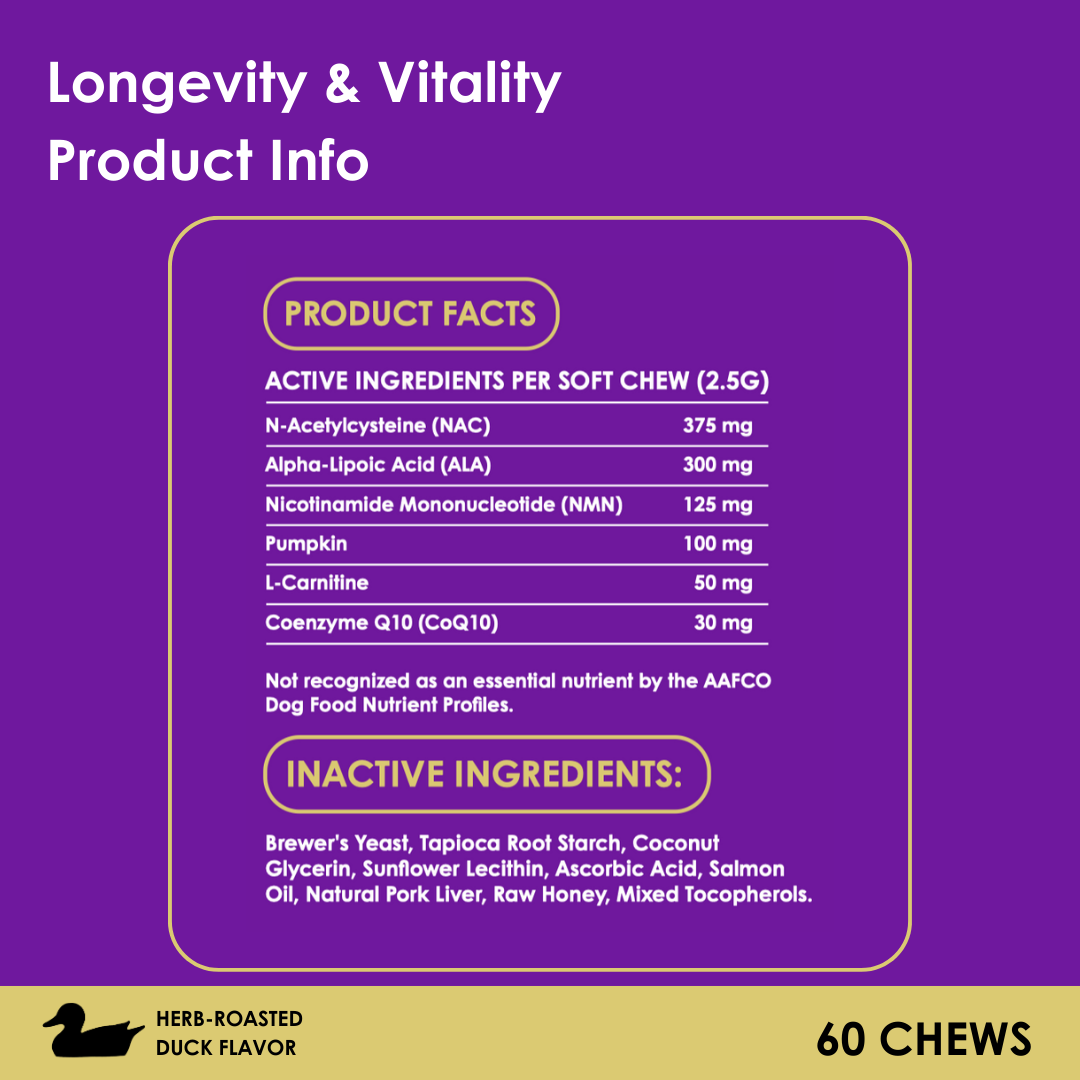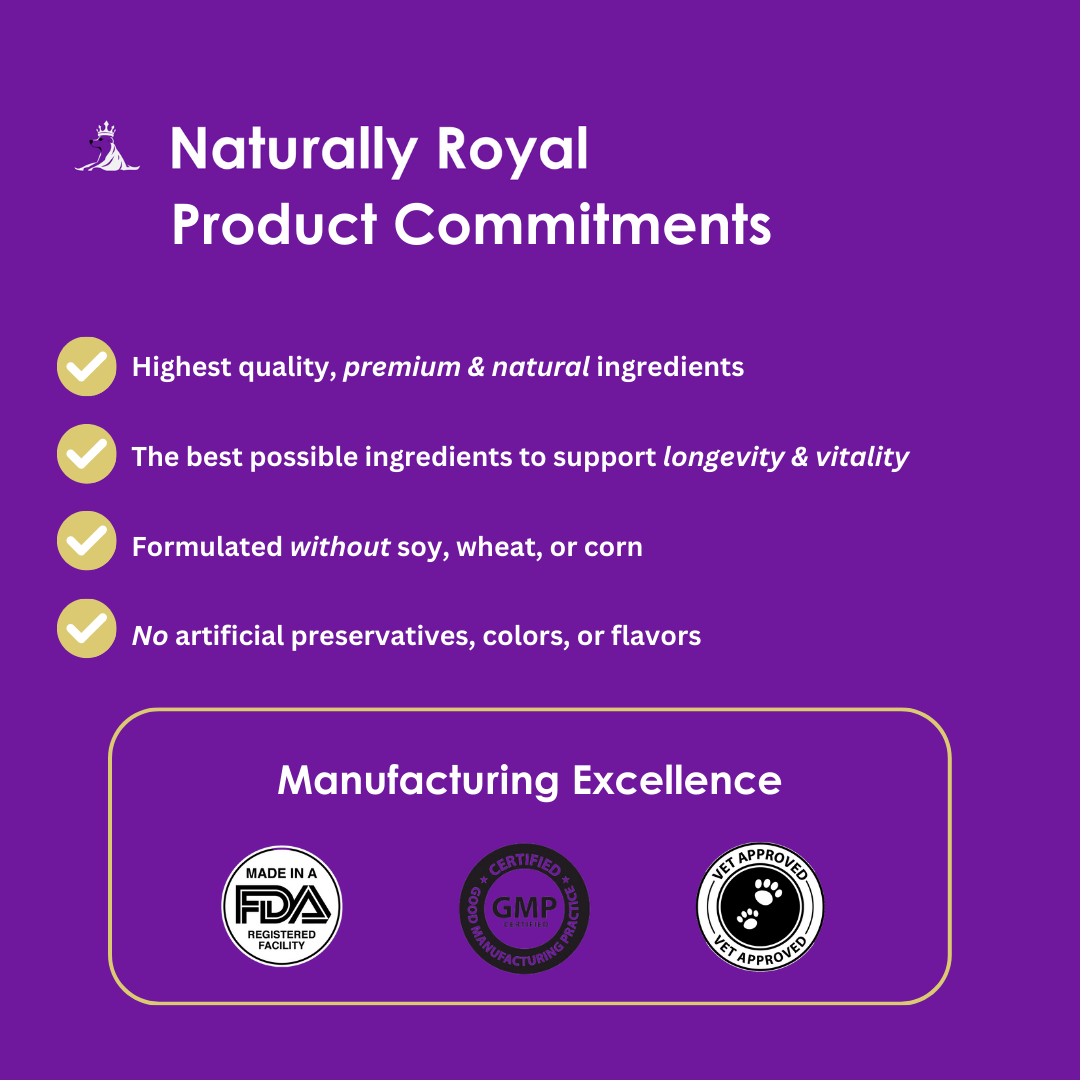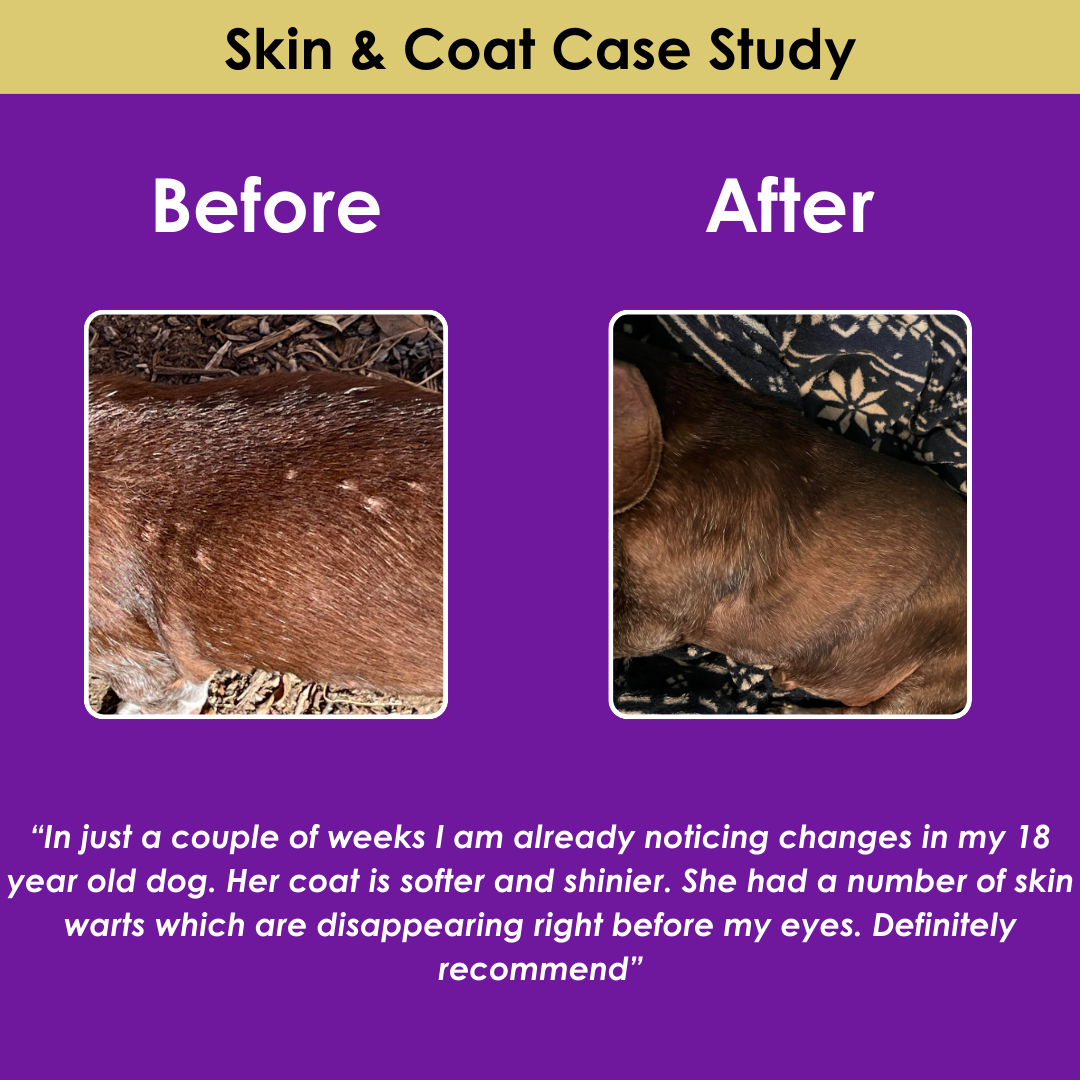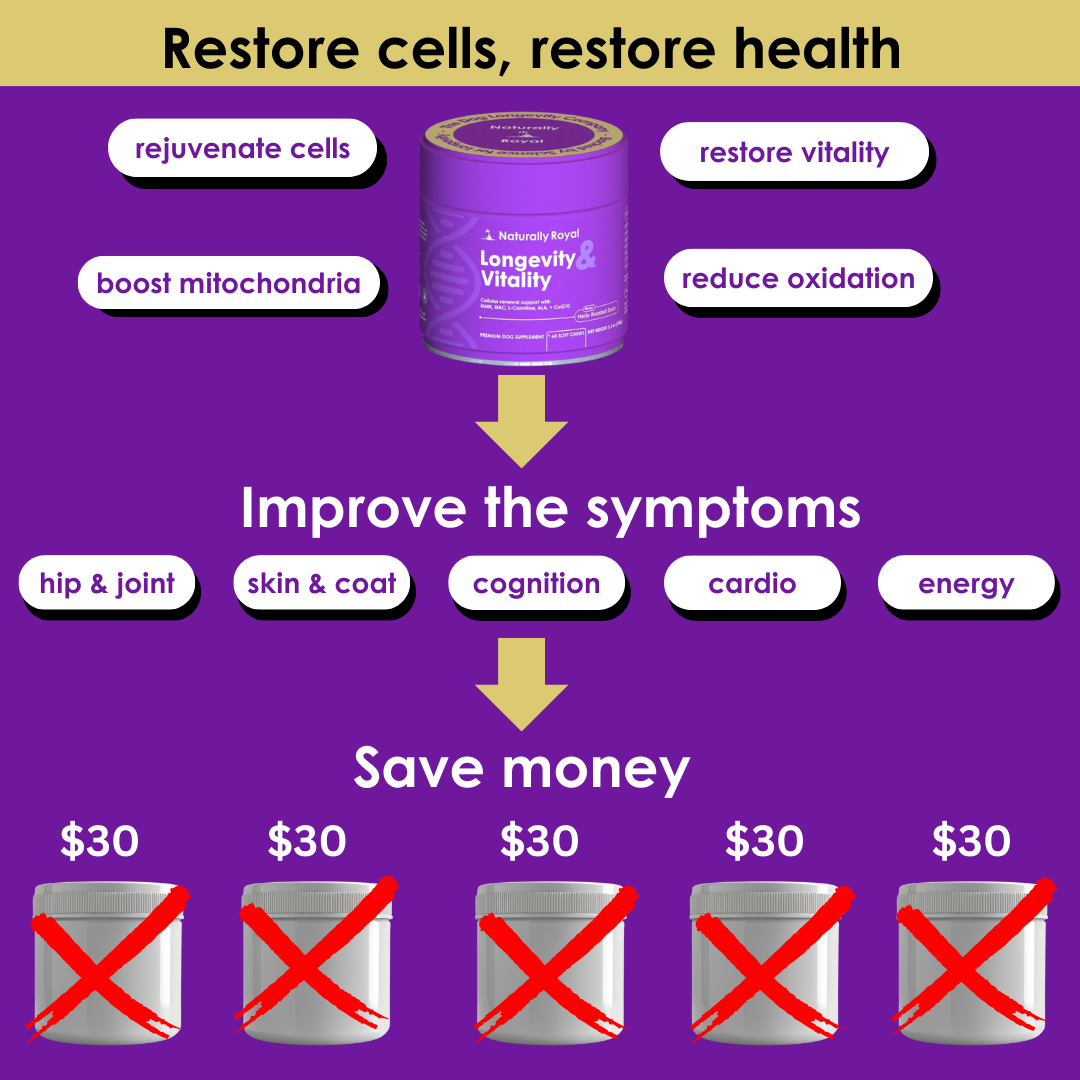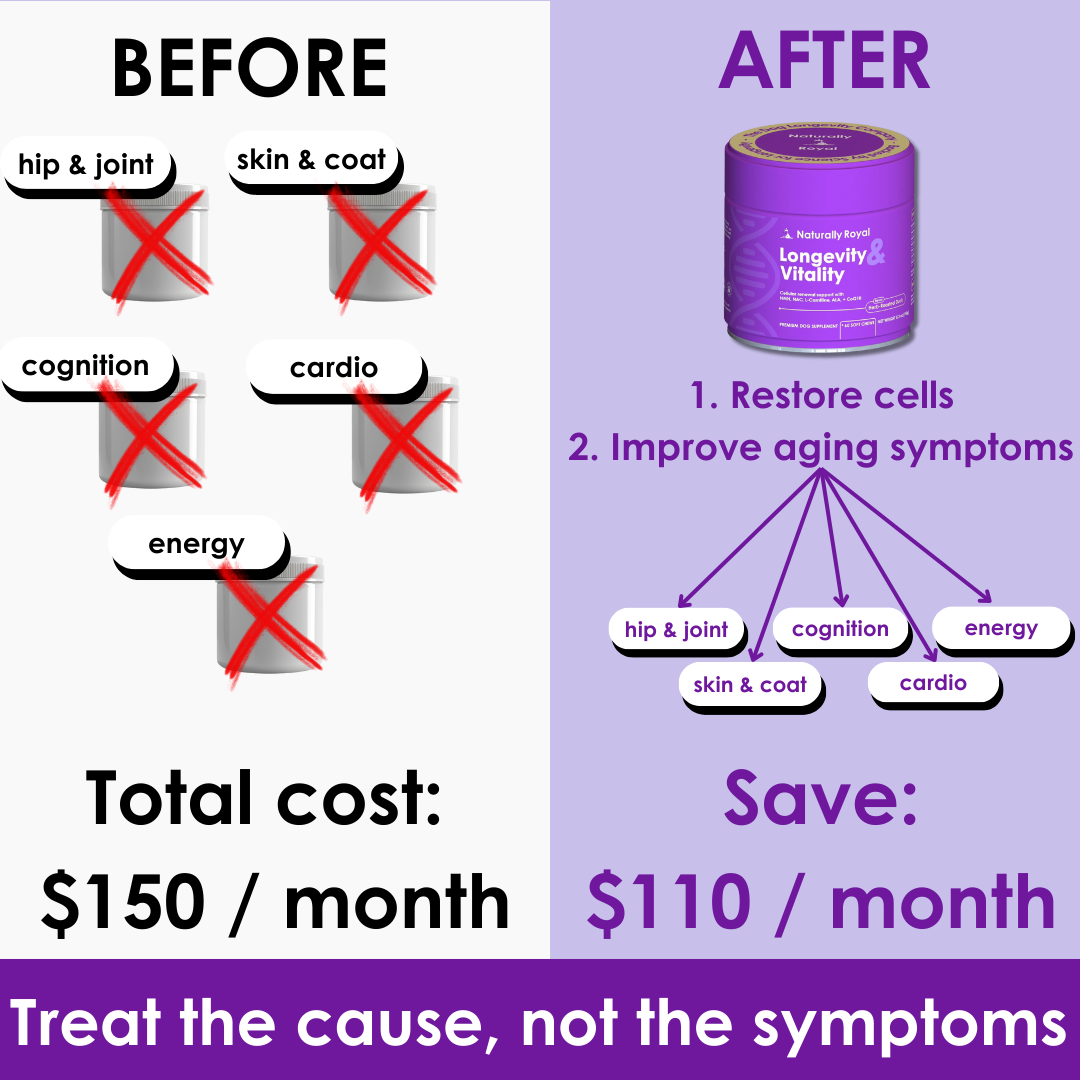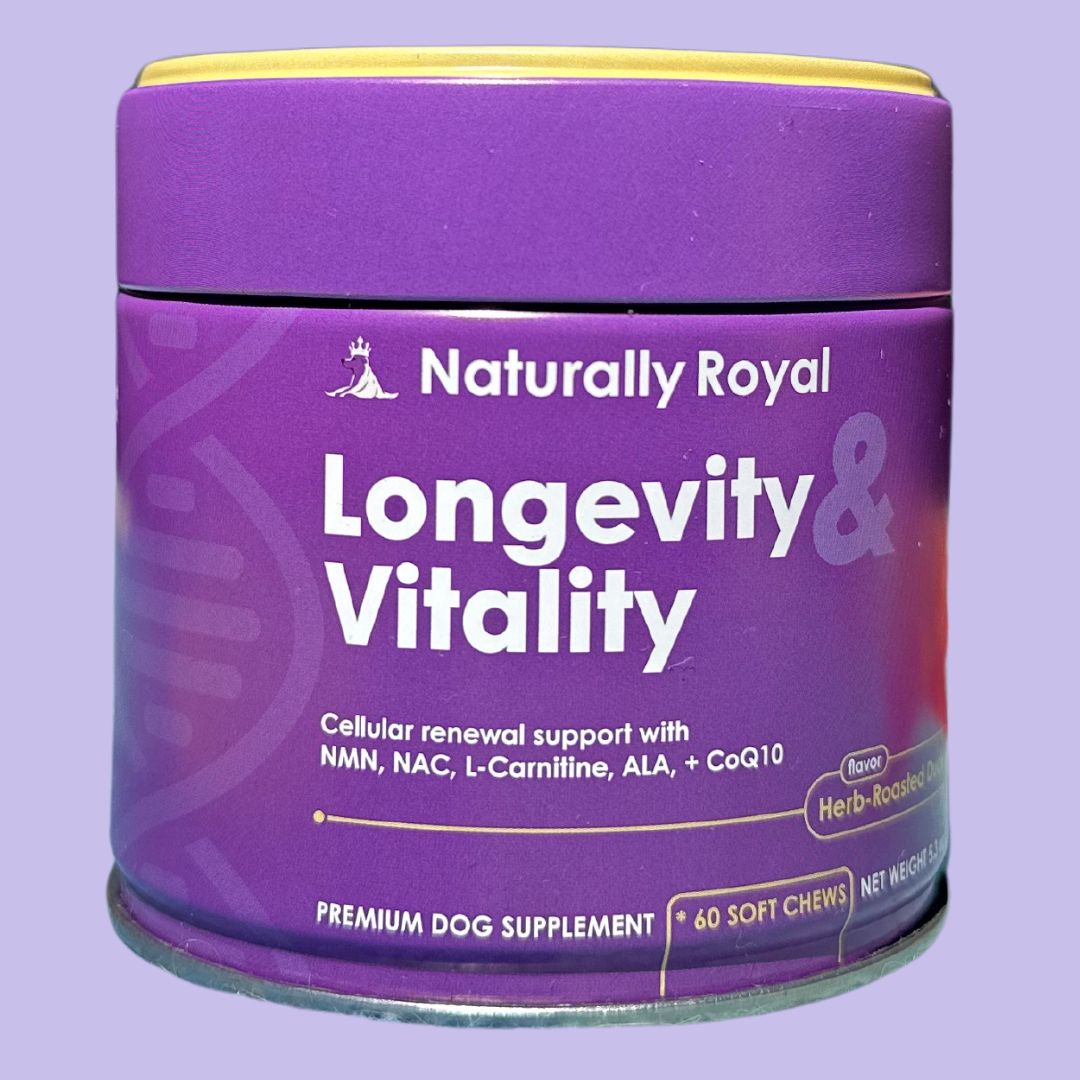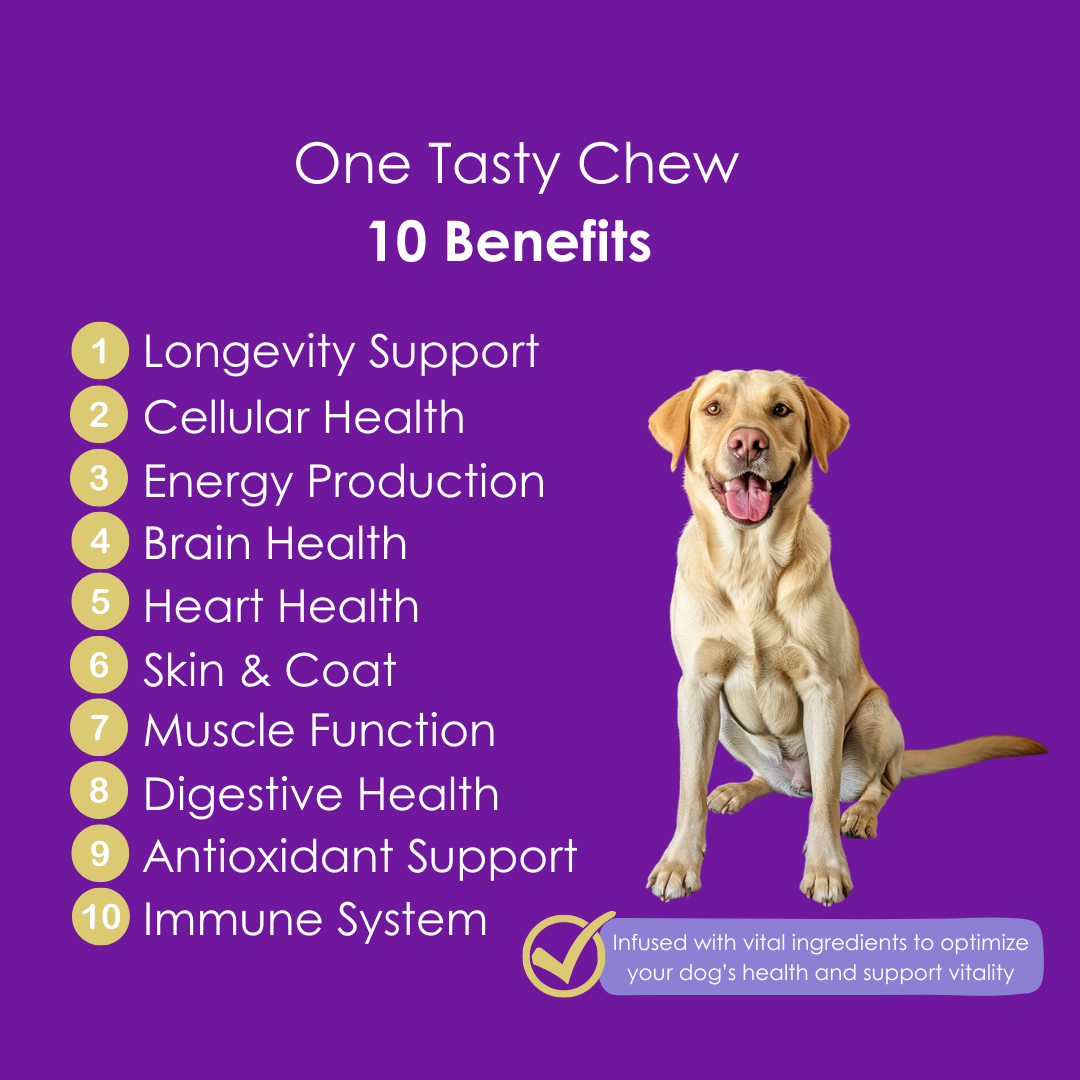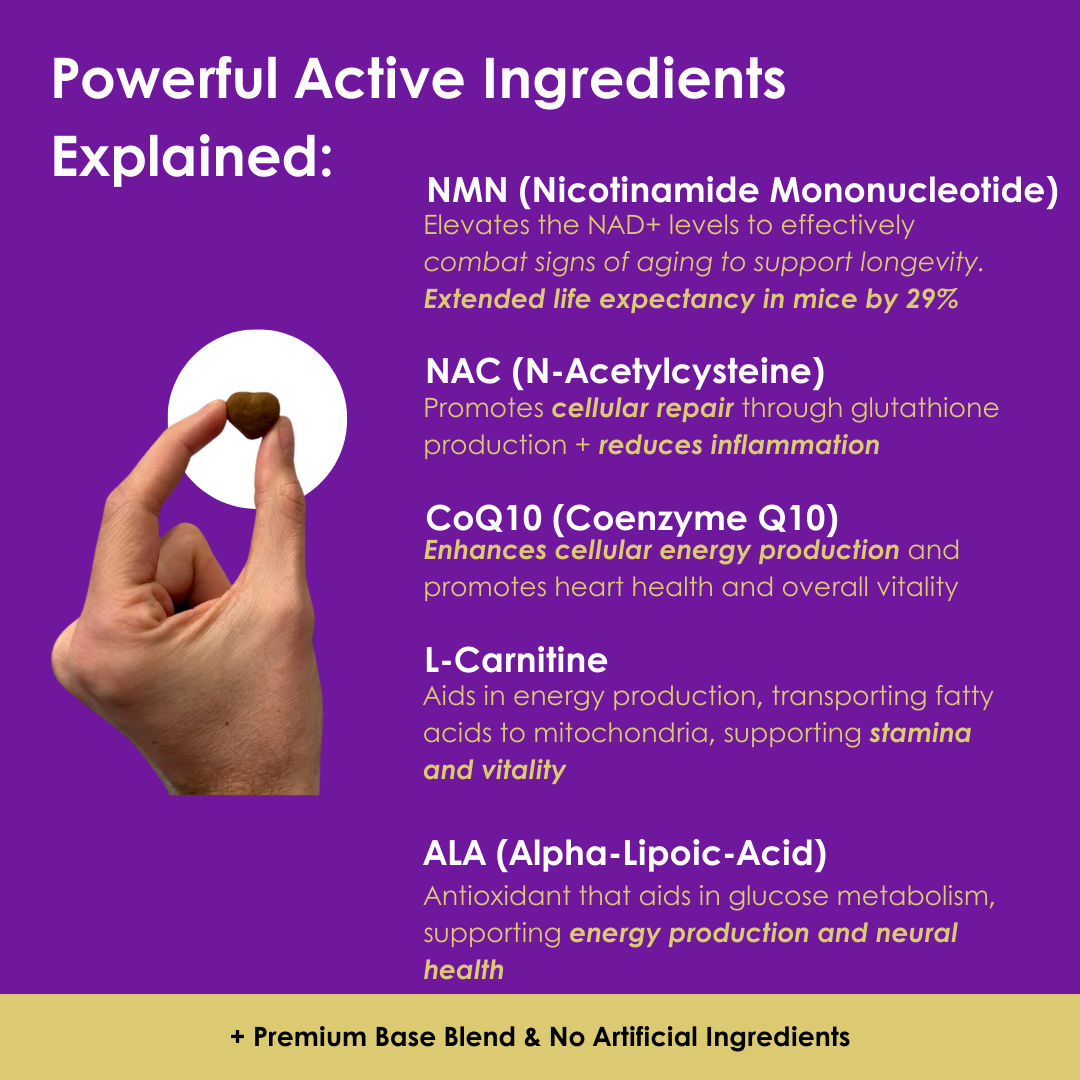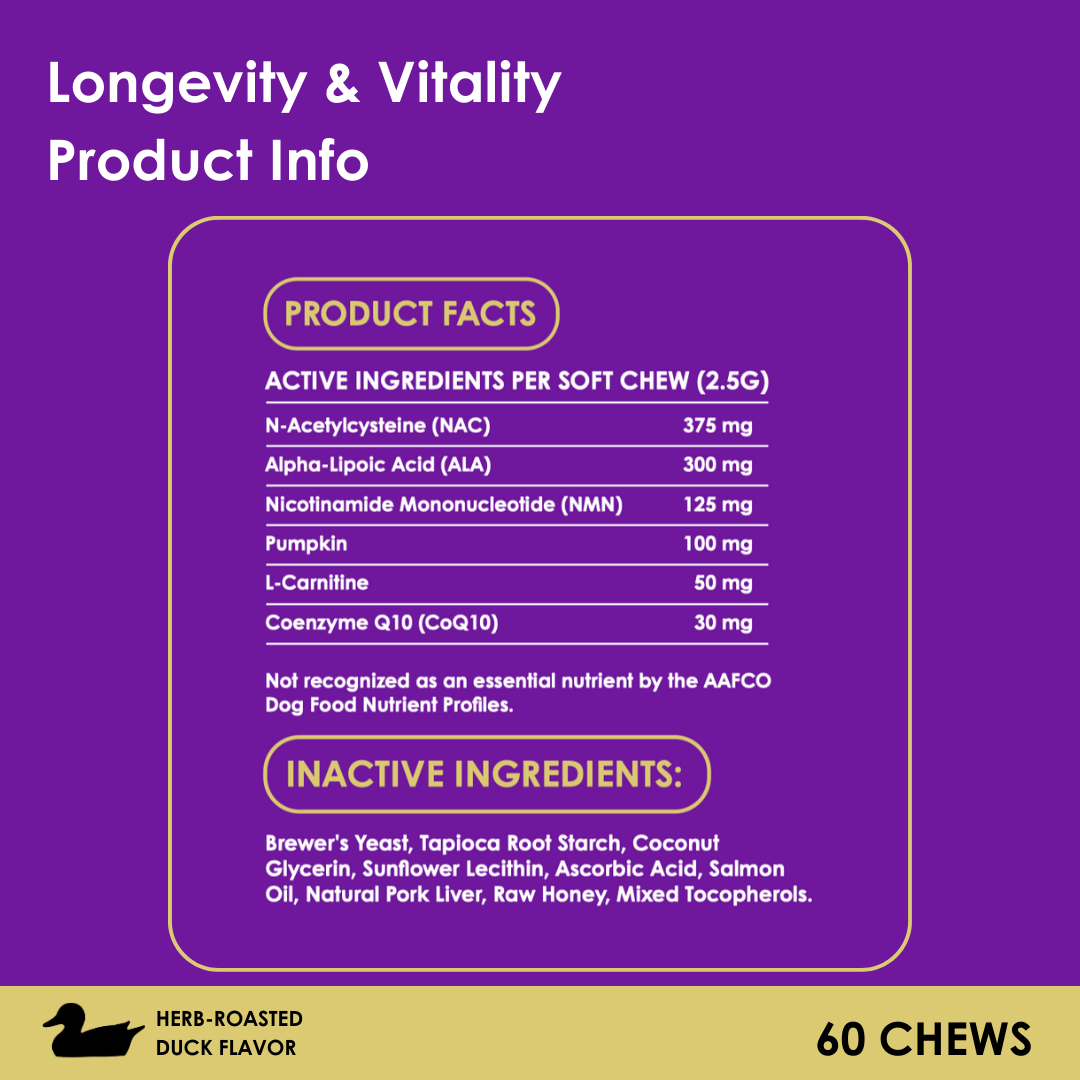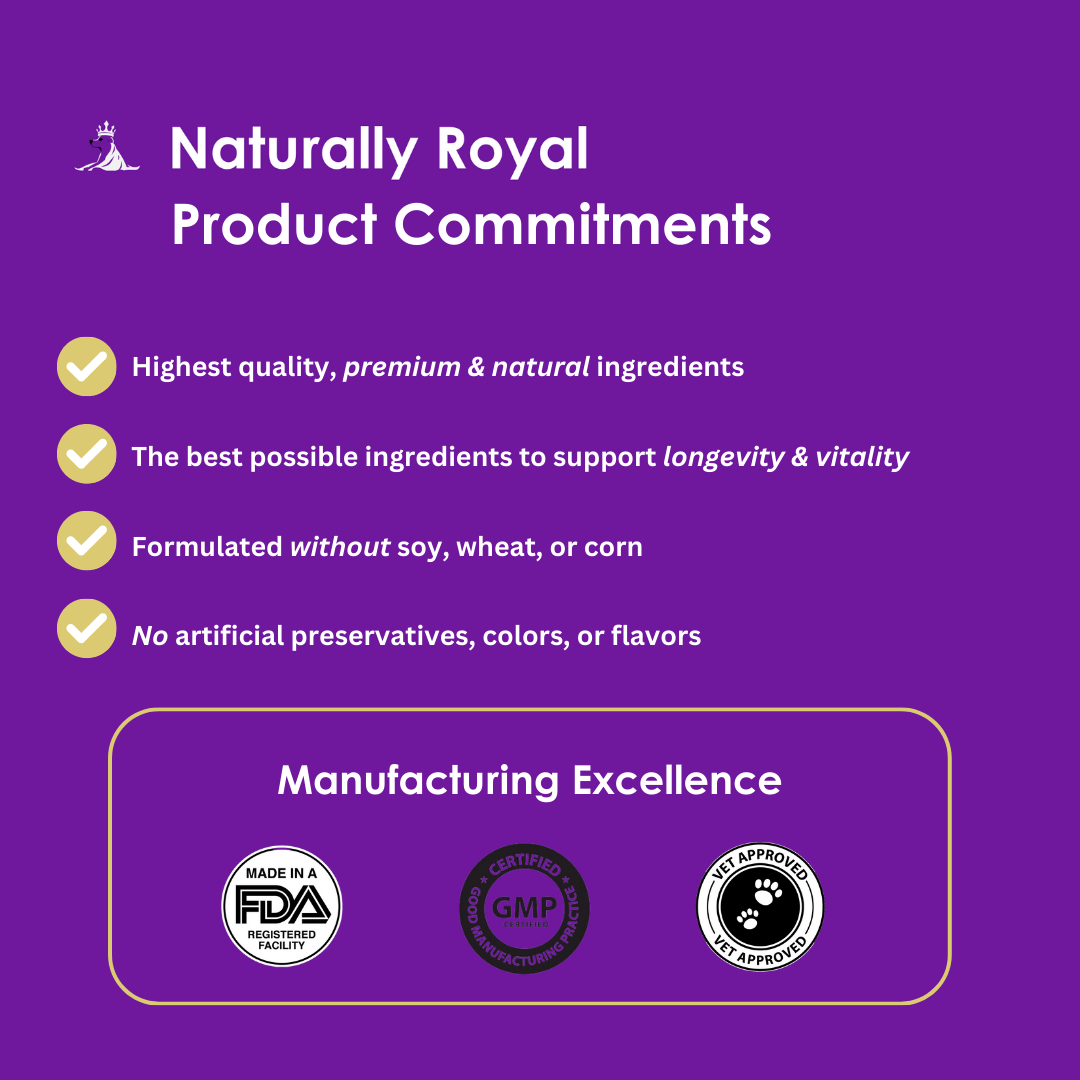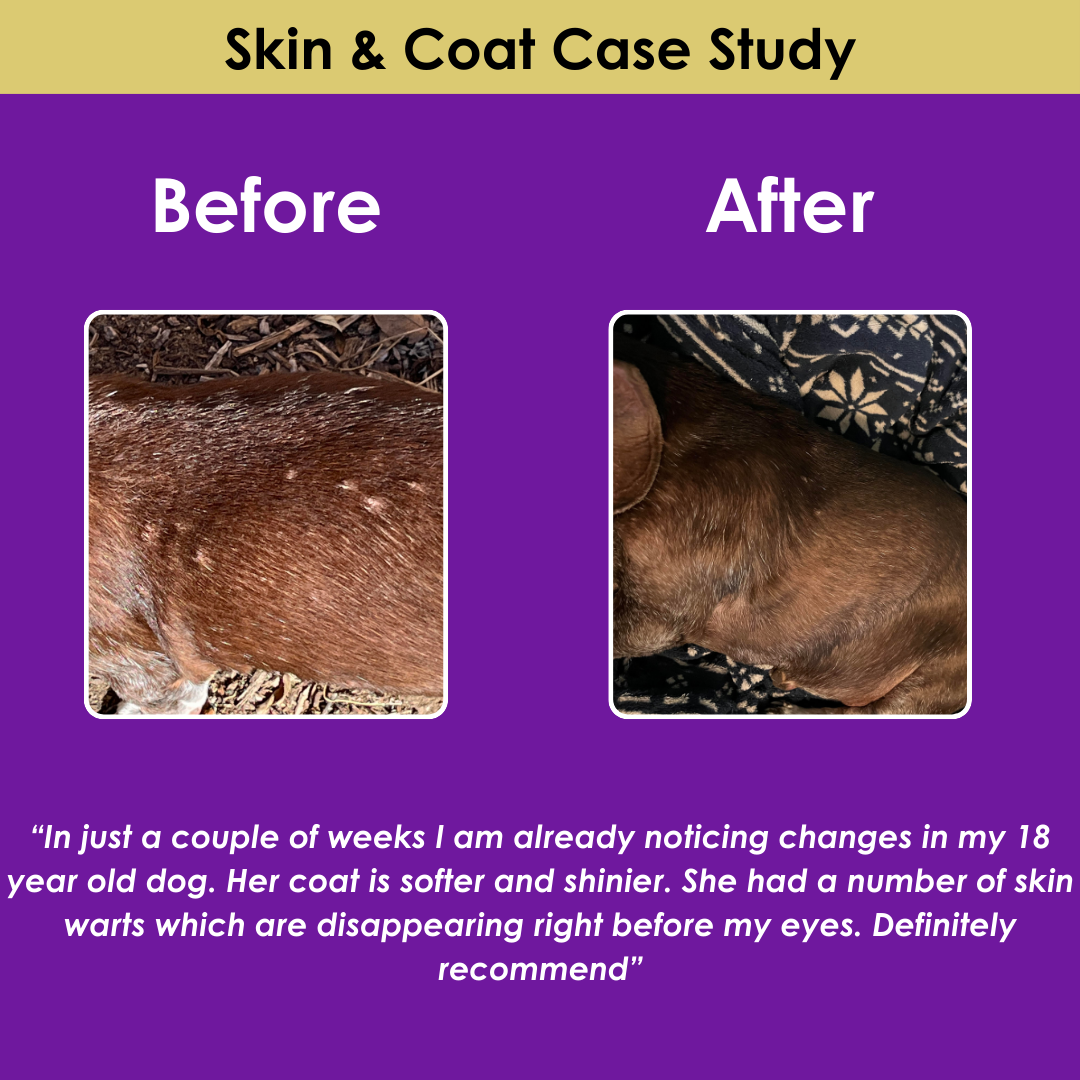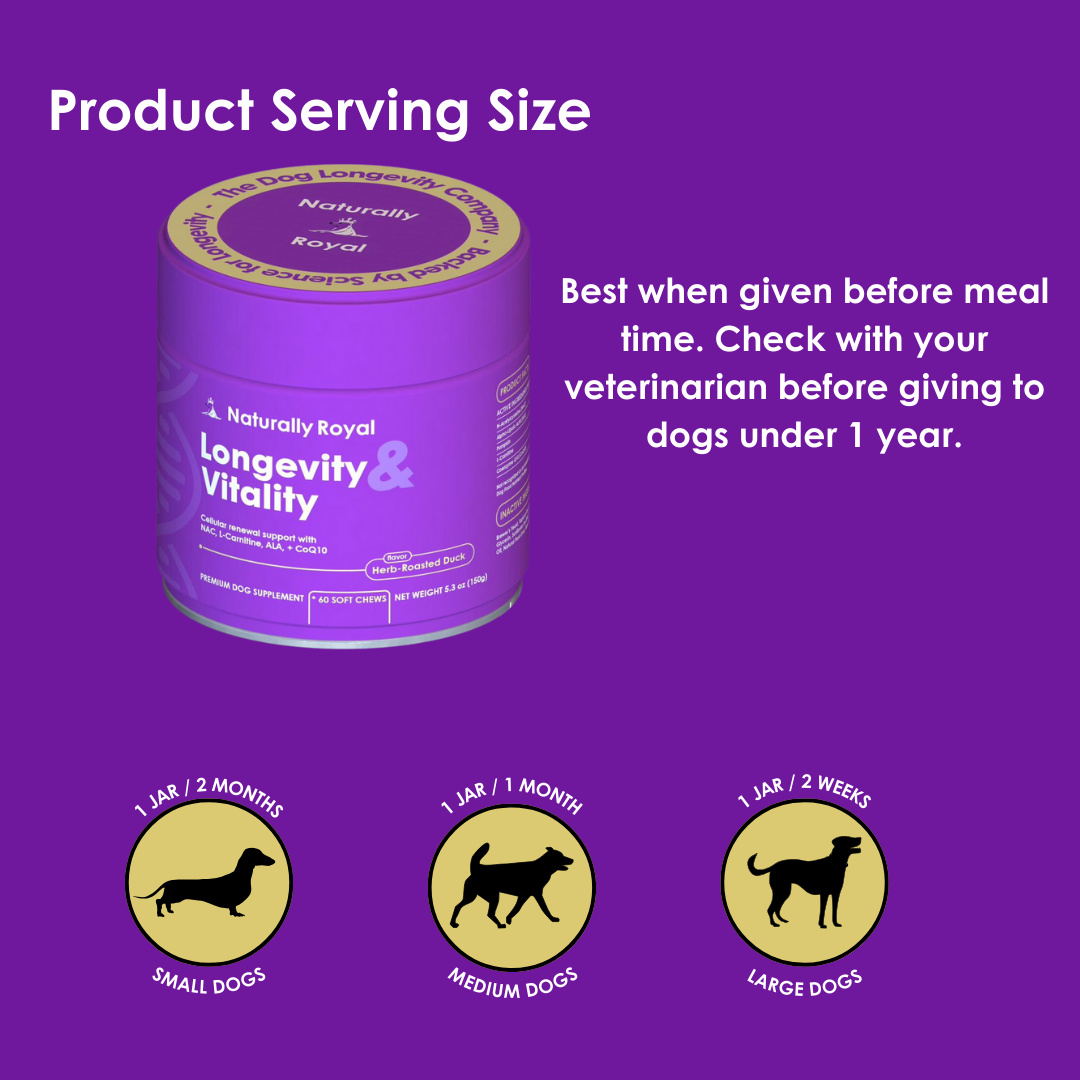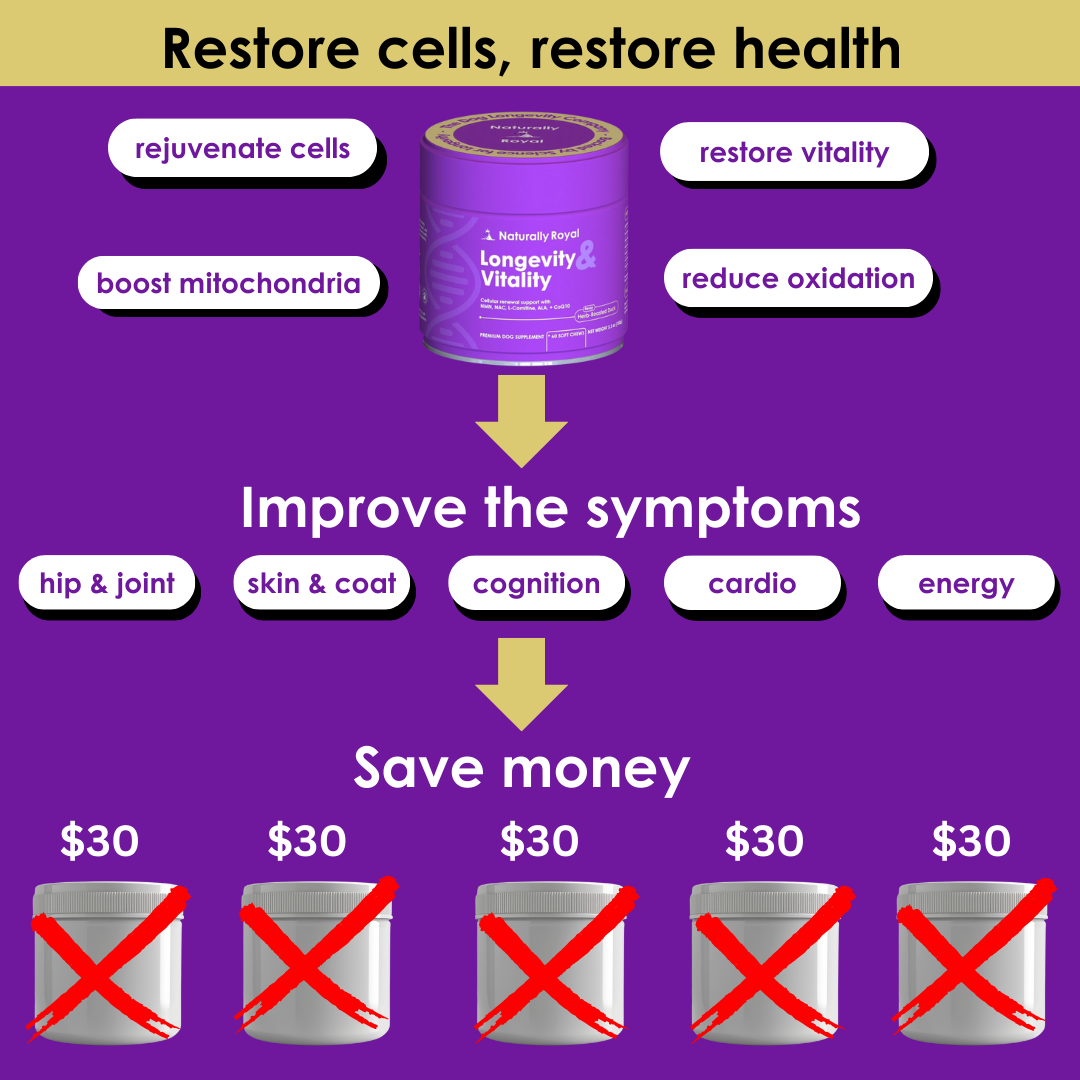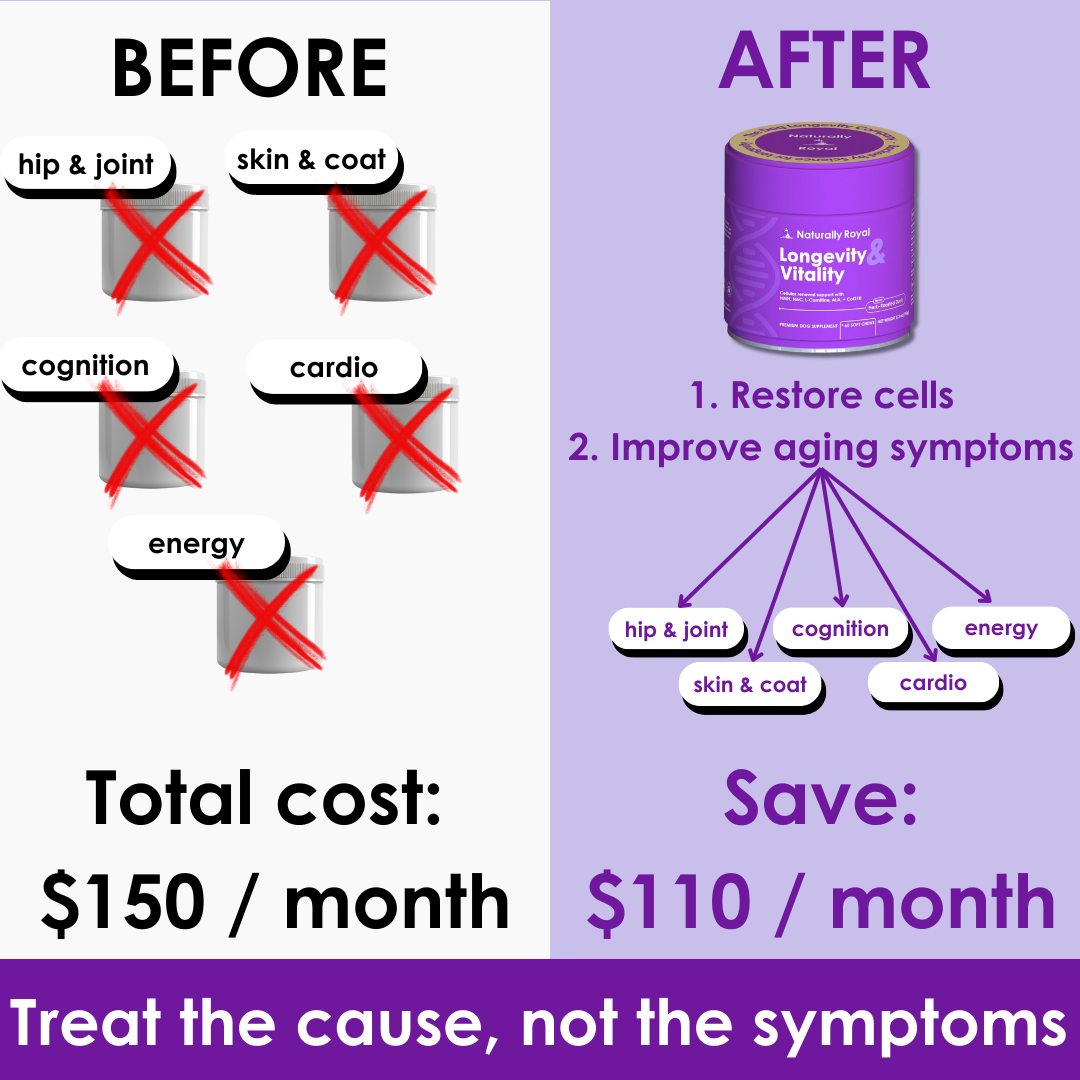Longer Life by Maintaining Muscle Mass
Maintaining muscle mass is essential for ensuring your dog's health and quality of life as they age. Muscle loss, or sarcopenia, is a common issue in older dogs and can lead to decreased mobility, strength, and overall vitality. However, with the right combination of diet, exercise, and supplements, you can help your dog maintain their muscle mass and stay active well into their senior years. Here’s how:
Understanding Muscle Loss in Aging Dogs
As dogs age, their bodies naturally lose muscle mass. This process can be accelerated by various factors, including:
-
Decreased Activity: Older dogs may become less active due to joint pain or other health issues, leading to muscle atrophy.
-
Nutritional Deficiencies: Inadequate intake of protein and essential nutrients can contribute to muscle loss.
-
Hormonal Changes: Aging can cause hormonal imbalances that affect muscle metabolism and growth.
Key Strategies to Maintain Muscle Mass
To combat muscle loss and promote longevity in your aging dog, consider implementing the following strategies:
1. Balanced Diet
Providing a balanced diet rich in high-quality protein and essential nutrients is crucial for maintaining muscle mass. Here’s what to focus on:
-
High-Quality Protein: Protein is vital for muscle repair and growth. Ensure your dog’s diet includes lean meats, fish, and specially formulated senior dog foods with adequate protein levels.
-
Omega-3 Fatty Acids: Found in fish oil and flaxseed oil, omega-3 fatty acids have anti-inflammatory properties that support muscle health and joint function.
-
Antioxidants: Antioxidants like vitamins C and E help reduce oxidative stress, which can contribute to muscle degradation. Include antioxidant-rich foods such as berries and leafy greens in your dog’s diet.
-
Amino Acids: Ensure your dog gets essential amino acids like leucine, which is critical for muscle synthesis and maintenance.
2. Supplements
Supplements can provide additional support for maintaining muscle mass in aging dogs. Consider incorporating the following:
-
L-Carnitine: L-carnitine is an amino acid derivative that plays a crucial role in energy metabolism and fat oxidation. It helps preserve lean muscle mass and can improve endurance and recovery. We include this in our Longevity & Vitality chews.
-
Glucosamine and Chondroitin: These supplements support joint health, allowing for better mobility and activity levels, which are essential for maintaining muscle mass.
-
Coenzyme Q10 (CoQ10): CoQ10 supports cellular energy production and has been shown to improve muscle function and reduce fatigue. CoQ10 is also included in our Longevity & Vitality chews.
-
Branched-Chain Amino Acids (BCAAs): BCAAs can help prevent muscle breakdown and support recovery after exercise.
3. Regular Exercise
Physical activity is vital for preserving muscle mass and overall health in older dogs. Here are some tips for keeping your dog active:
-
Gentle Exercise: Engage in low-impact activities such as walking, swimming, or playing fetch. These exercises help maintain muscle mass without putting excessive strain on joints.
-
Strength Training: Incorporate strength-building exercises like incline walking or using resistance bands designed for dogs. These activities can help build and maintain muscle.
-
Consistency: Ensure your dog gets regular exercise, ideally every day, to prevent muscle atrophy and maintain cardiovascular health.
4. Physical Therapy and Rehabilitation
Physical therapy can be beneficial for dogs experiencing muscle loss due to injury or aging. Consider these options:
-
Hydrotherapy: Swimming or using an underwater treadmill can help improve muscle strength and flexibility while minimizing joint stress.
-
Massage Therapy: Regular massages can improve blood circulation, reduce muscle tension, and promote relaxation.
Conclusion
Maintaining muscle mass is crucial for the health and longevity of aging dogs. By providing a balanced diet rich in protein and essential nutrients, incorporating supplements, ensuring regular exercise, and considering physical therapy, you can help your dog stay strong and active throughout their senior years. Always consult with your veterinarian before making significant changes to your dog’s diet or exercise routine to ensure it meets their specific needs. With the right care and attention, you can enhance your dog’s quality of life and enjoy many more years together.


